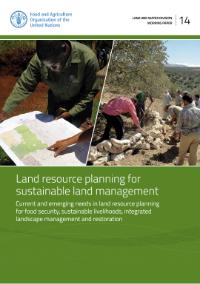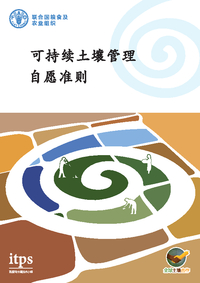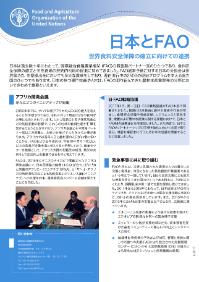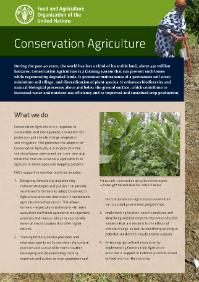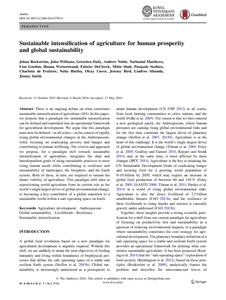Focal point
Location
The Food and Agriculture Organization of the United Nations leads international efforts to defeat hunger. Serving both developed and developing countries, FAO acts as a neutral forum where all nations meet as equals to negotiate agreements and debate policy. FAO is also a source of knowledge and information. We help developing countries and countries in transition modernize and improve agriculture, forestry and fisheries practices and ensure good nutrition for all. Since our founding in 1945, we have focused special attention on developing rural areas, home to 70 percent of the world's poor and hungry people.
Members:
Resources
Displaying 686 - 690 of 5074Land resource planning for sustainable land management
This working paper provides an overview of the historic development and current status of implementation of land evaluation and land use planning concepts and tools for land resources/landscape management and proposes a way forward. The increasing and juxtaposed challenges of population growth and increasing demands on limited resources by diverse actors, land degradation, biodiversity loss and climate change, require a rational utilization of resources to sustain and enhance productivity and m aintain resilient ecosystems.
可持续土壤管理自愿准则
本《可持续土壤管理自愿准则》在全球土壤伙伴关系框架内通过一个包容性进程编制。准则旨在用作参考,为投入其中的广大利益相关者提供可持续土壤管理方面的一般性技术和政策建议。准则已在全球土壤伙伴关系第四届全体会议(2016年5月25日,罗马)上获得通过、在粮农组织农业委员会第25届会议(2016年8月29日,罗马)上获得批准并在粮农组织理事会第155届会议(2016年12月5日,罗马)上获得最终批准。
日本とFAO
日本は過去数十年にわたって、国際連合食糧農業機関(FAO)の最重要パートナー国のひとつであり、食料安
全保障の確立と天然資源の持続的利用の促進に努めてきました。FAO通常予算に対する日本の分担金は世界第2位、任意拠出金においても多大な貢献をしており、現在進行中の2500の現地プログラムを支える協力国のひとつでもあります。日本の持つ専門技術や人材は、FAOの取り組んできた農林水産業開発の分野においてきわめて重要といえます。Conservation Agriculture - Revised version
Conservation Agriculture is a response to sustainable land management, environmental protection and climate change adaptation and mitigation. FAO promotes the adoption of Conservation Agriculture principles (minimal soil disturbance, permanent soil cover and crop rotations) that are universally applicable in all agricultural landscapes and cropping systems.
Sustainable intensification of agriculture for human prosperity and global sustainability
There is an ongoing debate on what constitutes sustainable intensification of agriculture (SIA). In this paper, we propose that a paradigm for sustainable intensification can be defined and translated into an operational framework for agricultural development. We argue that this paradigm must now be defined—at all scales—in the context of rapidly rising global environmental changes in the Anthropocene, while focusing on eradicating poverty and hunger and contributing to human wellbeing.







